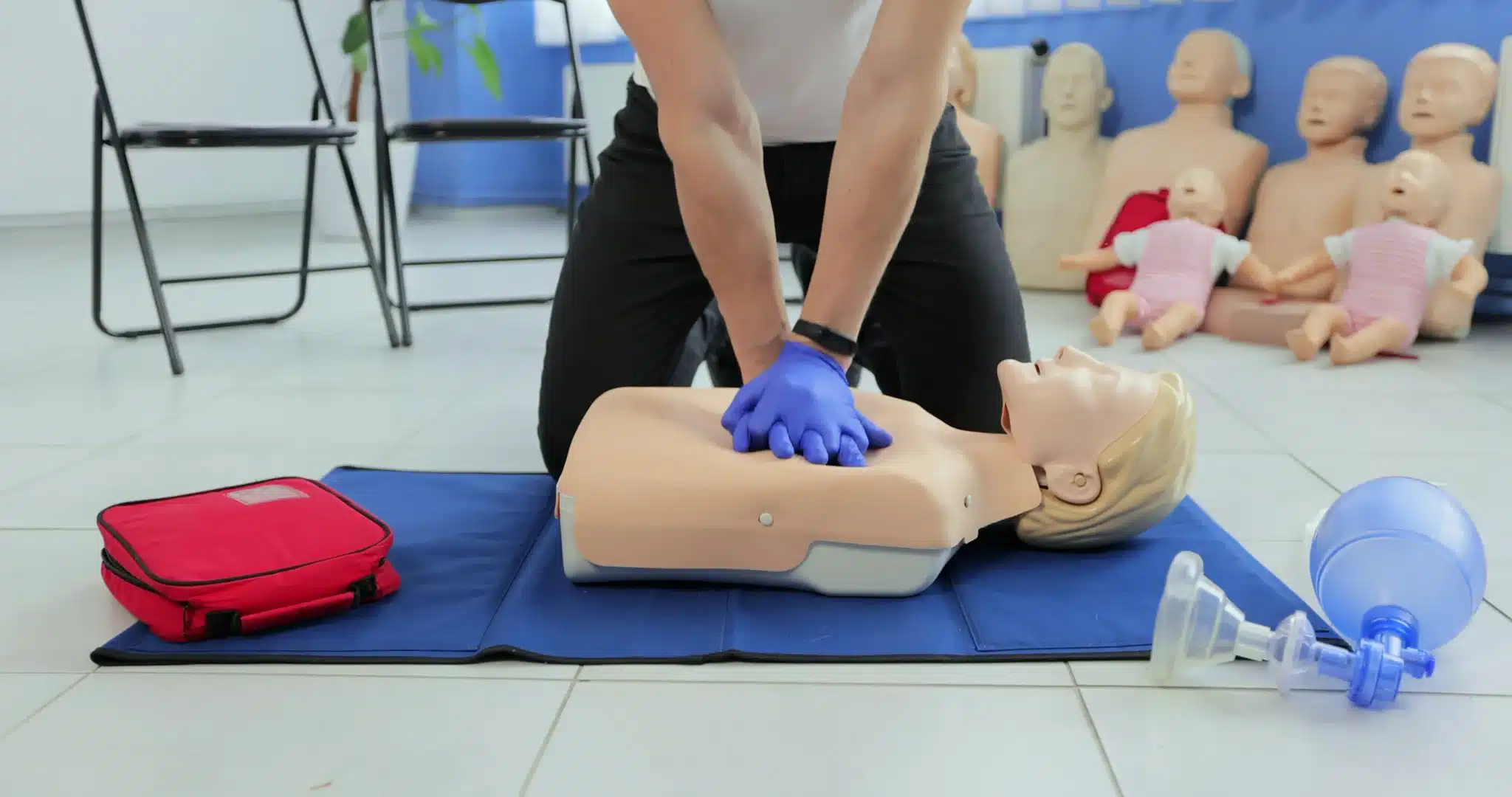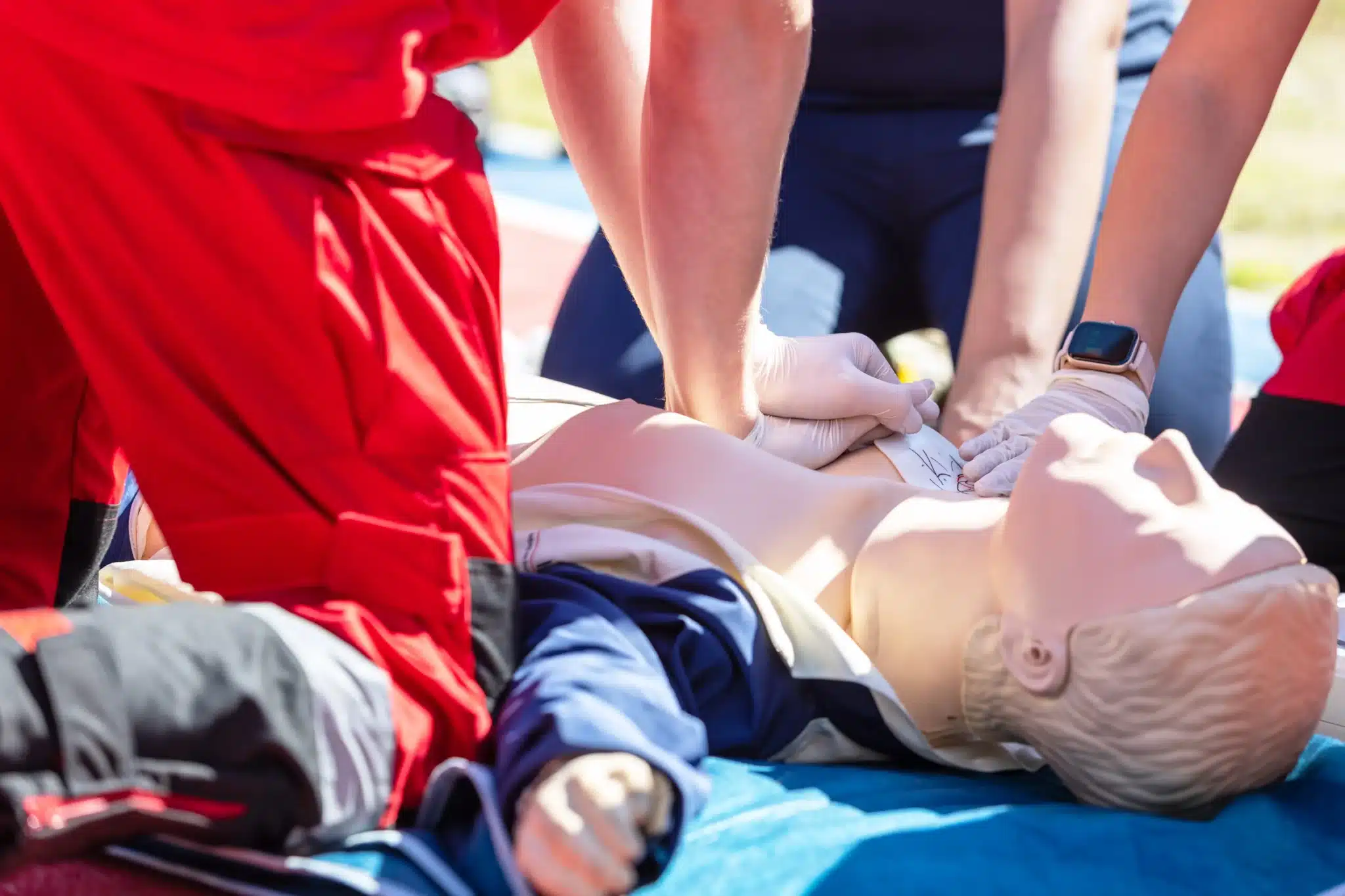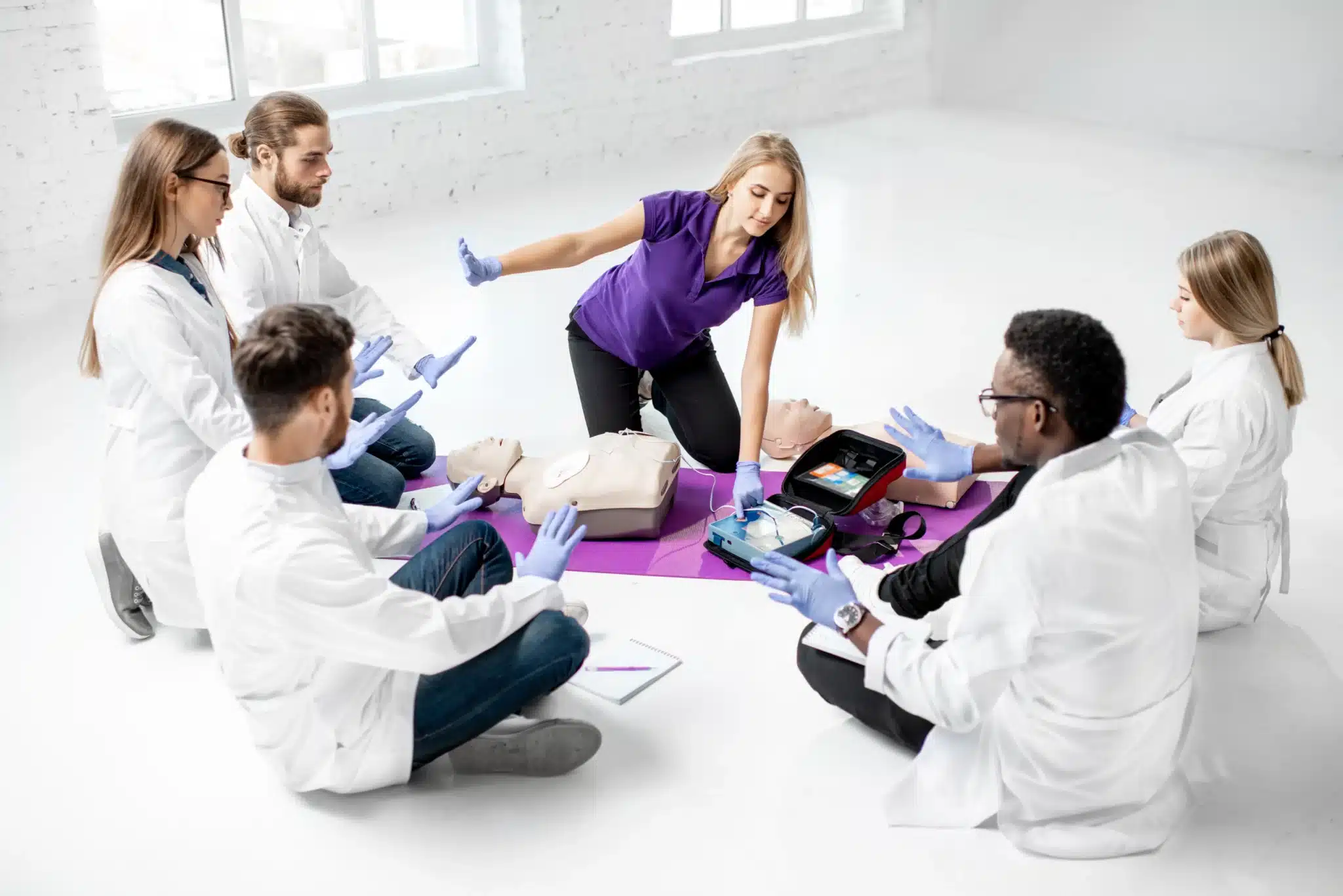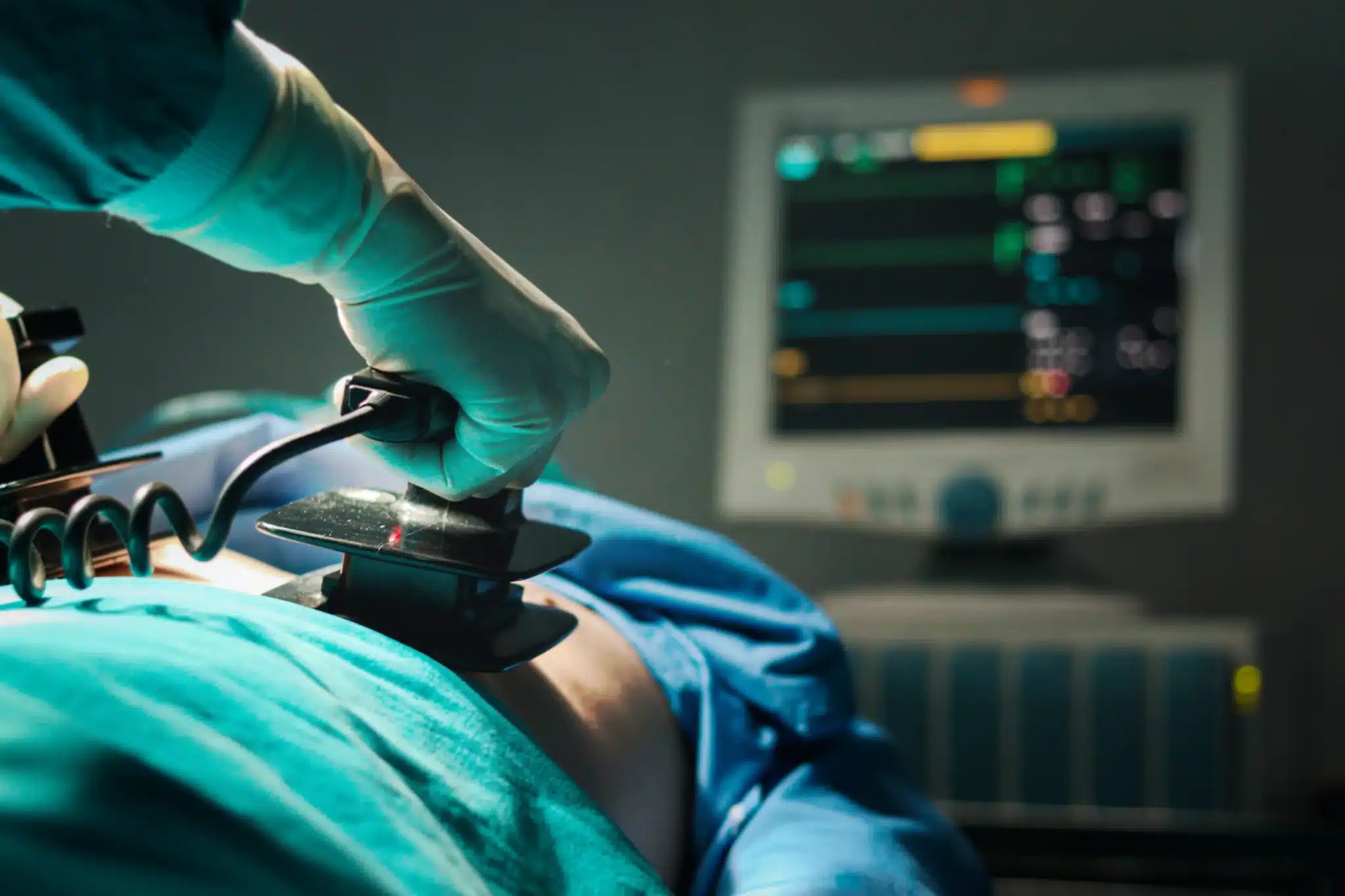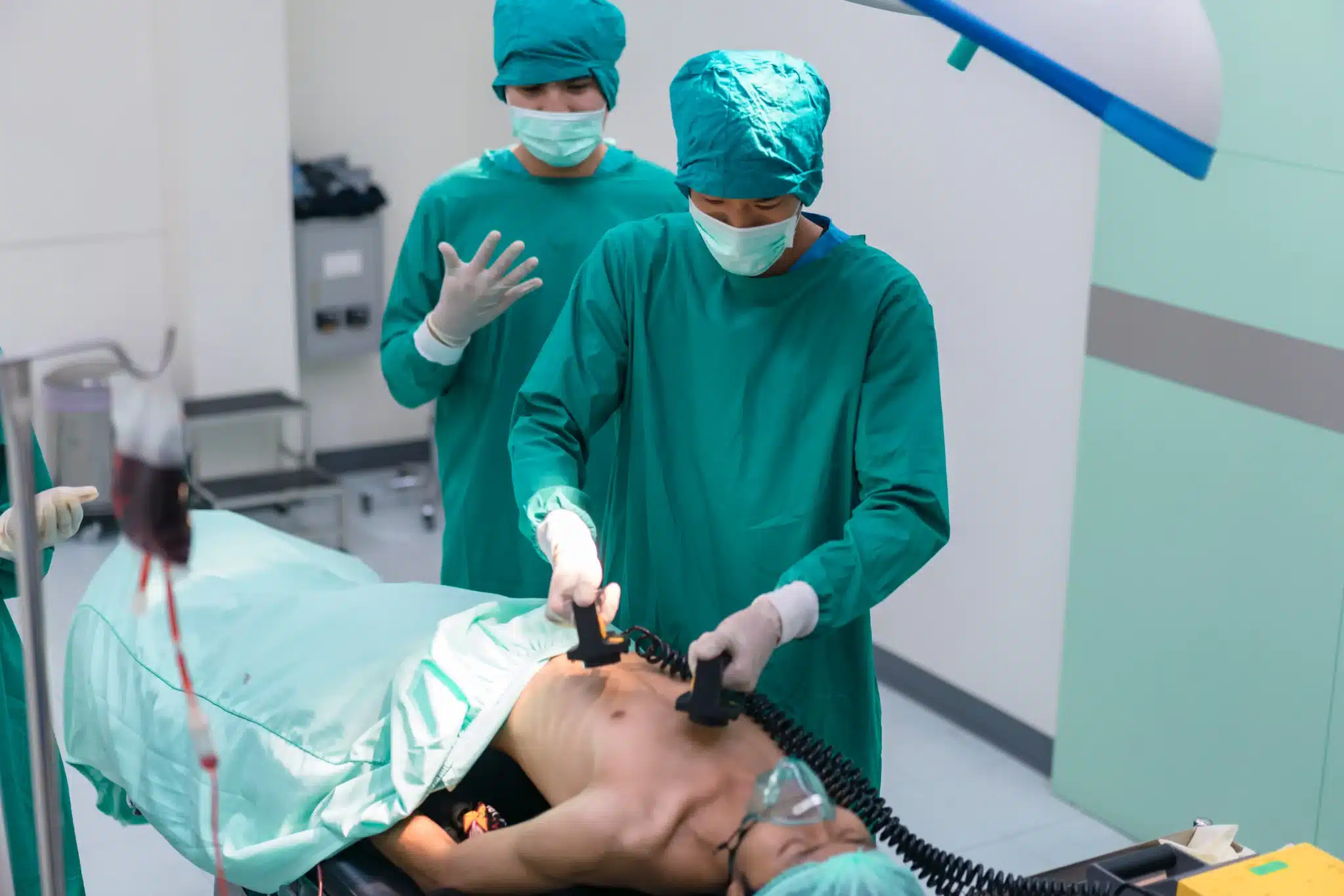Juggling the demands of a healthcare career often leaves little room for extra tasks. But when it comes to BLS renewal in Newark, it’s not just another item on your to-do list—it’s a critical investment in your skills and your patients’ well-being. Staying up-to-date with the latest life-saving techniques is paramount in providing effective care. This guide simplifies the BLS renewal process, outlining the key steps, costs, and options available in Newark. We’ll explore the benefits of online versus in-person training, discuss common challenges and their solutions, and provide you with the resources you need to approach your renewal with confidence. Let’s make sure your skills are as sharp as they can be, so you’re always ready to respond effectively in any situation.
Key Takeaways
- Stay current with the latest life-saving practices: BLS renewal keeps your skills sharp and ensures you’re prepared for emergencies. Regularly review guidelines and engage in hands-on practice.
- Find a renewal option that fits your lifestyle: Whether you prefer online flexibility or in-person interaction, choose the learning format that best suits your needs and schedule. Both paths lead to the same valuable certification.
- Prioritize timely renewal: Don’t wait until the last minute. Mark your certification expiration date and schedule your renewal course in advance. This demonstrates your commitment to patient care and keeps your skills up-to-date.
What is BLS Renewal?
BLS renewal is how healthcare providers keep their Basic Life Support certification current. It’s a refresher on the latest guidelines and practices for CPR, AED use, and other life-saving techniques. Think of it as a tune-up for your skills, making sure you’re ready to respond effectively in an emergency. The American Heart Association (AHA) recommends renewing your BLS certification every two years. This ensures you’re always up-to-date with the best practices for delivering high-quality patient care. The renewal process typically includes a course, an exam, and a new certification card. It’s not just a box to check; it’s a crucial step in preparing healthcare professionals for any situation. For convenient BLS renewal options in Fremont, Newark, or San Jose, take a look at our CPR course directory.
Top BLS Renewal Providers in Newark
Finding the right BLS renewal provider is key to maintaining your certification and staying up-to-date with the latest life-saving techniques. Here are a few reputable options in Newark:
Fremont CPR Classes
Fremont CPR Classes offers flexible, high-quality CPR training. We provide various AHA-compliant BLS courses, convenient scheduling options, and competitive pricing. Our focus is on providing comprehensive training that equips healthcare providers with the skills and confidence to respond effectively in emergencies. For businesses and organizations in Newark, Fremont, and San Jose, we offer discounted group rates. Check out our CPR renewal guide for more information.
American Red Cross
The American Red Cross is a well-known provider of BLS renewal and recertification courses. Their blended learning courses combine online coursework with in-person skills sessions to update your skills, refresh your knowledge, and extend your certification for two years.
Newark Beth Israel Medical Center
Newark Beth Israel Medical Center provides an American Heart Association (AHA) Basic Life Support (BLS) course for Healthcare Providers. This course covers crucial life-saving skills, including CPR for adults, children, and infants, AED use, and how to handle choking situations. As a local medical center, they offer a practical, hands-on learning environment.
Local CPR Training Centers
Many local CPR training centers offer BLS renewal courses, both in-person and online. These courses typically cover adult, child, and infant CPR, AED use, and basic life support (BLS). Explore additional options in our directory of CPR training centers in Northern California. Contact us if you have any questions or need help finding a provider that meets your needs.
BLS Renewal Costs & Value
Renewing your Basic Life Support (BLS) certification is an investment in your skills and career. Understanding the costs and the value it brings helps you make informed decisions about your training. Let’s break down BLS renewal costs and explore the benefits of staying current.
Pricing
BLS renewal courses in Newark typically range from $60 to $100. Several factors influence the final price, including the training provider, course format (online or in-person), and included materials. Some providers offer all-inclusive packages with training materials, while others may charge separately. Contact your chosen provider directly, like Fremont CPR Classes, to understand exactly what’s covered in the course fee. This way, you can accurately compare pricing and choose the best option.
Group Discounts & Packages
Many training centers offer discounts for group bookings, making BLS renewal more affordable for organizations. This is a smart option for businesses, hospitals, or community groups looking to certify multiple staff members or volunteers at once. Check with providers in your area, including Fremont CPR Classes, about group discounts or tailored packages. These discounts can significantly lower the per-person cost, making high-quality training accessible to more people. If you’re coordinating training for a group, exploring these options can lead to substantial savings.
Online vs. In-Person BLS Renewal: Which is Right for You?
Deciding between online and in-person BLS renewal depends on your learning style, schedule, and preferences. Both options offer the same certification, but the learning experience differs. Let’s explore the benefits of each to help you choose the best fit.
Online Renewal Benefits
Online BLS renewal offers unparalleled flexibility. You can study at your own pace, fitting the coursework around your busy schedule. This is especially helpful for those juggling work, family, or other commitments. Online courses often incorporate interactive elements and simulations, allowing you to review essential concepts and procedures from anywhere with an internet connection. The American Red Cross offers convenient online BLS renewal and recertification. If you thrive in a self-directed learning environment and need a flexible option, online renewal might be a good choice. For those in Newark seeking online CPR renewal, check out our guide for more information.
In-Person Training Advantages
In-person BLS renewal provides a hands-on, immersive learning experience. You’ll receive immediate feedback from certified instructors, allowing you to refine your skills in real-time. The interactive nature of in-person training, with simulated scenarios and practice sessions, can enhance learning and retention. Newark Beth Israel Medical Center offers in-person BLS courses for healthcare providers. This format is particularly beneficial for those who learn best through direct interaction and prefer a structured classroom setting. If you value hands-on practice and thrive in a collaborative learning environment, in-person training might be the better option. For a comprehensive guide to in-person BLS renewal in Fremont, take a look at our blog post. Remember, both online and in-person renewal courses cover the same core material and lead to the same certification. The key is to choose the method that best suits your individual needs and learning style.
How Long Does BLS Renewal Certification Last?
Renewing your Basic Life Support (BLS) certification is essential for healthcare providers. Staying current ensures you’re equipped with the latest life-saving techniques. But how long does that renewed certification last, and what does the renewal process involve? Let’s clarify.
Course Length
BLS renewal courses refresh your skills and knowledge efficiently. They are generally shorter than the initial certification course. While the exact duration varies depending on the training provider and course format (online or in-person), expect a renewal course to take a few hours. Newark CPR Classes notes that BLS renewal courses in Newark typically cost between $60 and $100, depending on the provider and included materials.
Expiration & Grace Periods
Your American Heart Association (AHA) BLS certification is valid for two years. Renewing it before expiration is crucial to avoid a lapse in your qualification. You have a short grace period—up to 30 days after the expiration date—to renew your BLS certification, according to Save A Life CPR. However, planning ahead and renewing within the two-year timeframe is always recommended. Regular renewal, as emphasized by Spelling Bee Hinter, keeps you aligned with the latest AHA guidelines, which are periodically updated to reflect advancements in resuscitation science. This ongoing learning is vital for providing optimal care in emergencies.
What Will You Learn in BLS Renewal?
BLS renewal courses cover core life-saving techniques and the latest emergency response guidelines. It’s a refresher on essential skills and knowledge for healthcare providers. Let’s break down the key areas a BLS renewal course covers:
Adult, Child, & Infant CPR
This section focuses on performing high-quality CPR on individuals of all ages. You’ll review the proper techniques for chest compressions, rescue breaths, and coordinating CPR with a team. The course emphasizes the importance of maintaining correct hand placement, compression depth, and rate for optimal effectiveness. This hands-on practice builds confidence and reinforces muscle memory for effective CPR delivery in real-life emergencies. For more information on CPR, check out our BLS course page.
AED Use
Automated External Defibrillators (AEDs) are crucial tools in cardiac arrest situations. BLS renewal training reinforces how to quickly and correctly use an AED. You’ll learn about the different types of AEDs, how to assess a patient’s rhythm, and the steps for safe AED application. The course also covers troubleshooting common AED issues and emphasizes the importance of integrating AED use with ongoing CPR.
Choking Management
Responding effectively to choking emergencies is another vital component of BLS renewal. You’ll review techniques for relieving airway obstructions in both conscious and unconscious adults, children, and infants. The training covers back blows, abdominal thrusts (Heimlich maneuver), and finger sweeps, emphasizing the appropriate methods for each age group. This knowledge equips you to handle choking situations confidently and minimize potential complications. For further details, explore these resources on choking management techniques.
BLS Guideline Updates
Medical practices and guidelines are constantly evolving. BLS renewal ensures you’re up-to-date with the latest recommendations from organizations like the American Heart Association. This includes any changes to CPR techniques, AED protocols, or emergency response procedures. Staying current with these updates is critical for providing the most effective care and improving patient outcomes. You can find additional information on our BLS course page.
Get Ready for Your BLS Renewal in Newark
Getting ready for your BLS renewal doesn’t have to be stressful. With a little planning and preparation, you can walk into your renewal course or exam with confidence. Here’s what you need to know:
Required Materials
For in-person BLS renewal courses, you won’t need much. A pen and notepad are helpful for taking notes, though your instructor may provide key materials. If you prefer to take notes digitally, a tablet or laptop can be useful. Most importantly, remember to bring your current BLS provider card as proof of your existing certification. For online renewals, all you’ll need is a reliable computer and internet access. You can find more information about our online renewal process on our BLS course page.
Scheduling
Healthcare providers must renew their BLS certification every two years. Planning ahead is key. Check your card’s expiration date and give yourself plenty of time to schedule your renewal. Fremont CPR Classes offers a variety of course times and formats to accommodate busy schedules. Contact us to learn more about our class schedules and find a time that works for you. Whether you prefer the flexibility of online renewal or the hands-on experience of an in-person class, we have options to suit your needs. We also offer group discounts for those renewing with colleagues.
Preparation Tips
One of the best ways to prepare for your BLS renewal is to review the latest American Heart Association guidelines. These guidelines are regularly updated, so refreshing your knowledge beforehand will help you succeed. Don’t just skim the material—take the time to really understand the concepts and practice the skills. Hands-on practice is crucial for retaining information and building muscle memory. Consider practicing with a colleague to solidify your skills. If you’re recertifying online, take advantage of any practice tests or simulations offered. This will help you familiarize yourself with the format and identify any areas where you might need extra review. You can also explore our Northern CA CPR Directory for additional resources and training options.
Common BLS Renewal Challenges & Solutions
Let’s face it, renewing your BLS certification can sometimes feel like another task on an already overflowing to-do list. But staying current with your BLS skills is crucial for providing effective care, especially in emergencies. We’re here to break down some common BLS renewal hurdles and offer practical solutions to help you succeed.
Scheduling Conflicts
One of the biggest challenges many people face is finding a time that works with their busy schedules. Between work, family, and other commitments, squeezing in a renewal course can be tricky. Explore different course formats. Many providers offer weekend and evening classes, as well as blended learning options that combine online coursework with in-person skills sessions. If you’re part of a larger group, like a hospital department or a team of healthcare providers, contact training centers like Fremont CPR Classes to arrange a private group session. This can often be more cost-effective and easier to schedule around everyone’s availability.
Staying Up-to-Date with Guidelines
BLS guidelines are regularly updated to reflect the latest research and best practices in resuscitation. Staying on top of these changes is essential for providing the most effective care. One common mistake is not reviewing the course material before taking the recertification test. Medical practices and guidelines evolve, and BLS renewal ensures you’re trained according to the latest standards. Review the most recent American Heart Association (AHA) guidelines before your renewal course. This will give you a refresher on any updates and help you feel confident going into the test. High-quality training centers will also emphasize these updates during the course itself.
Maintaining Skills
Even if you’ve successfully renewed your BLS certification, it’s important to keep those skills sharp. Regularly practicing CPR techniques and reviewing protocols can make a huge difference in your ability to respond effectively in a real-life emergency. Incorporate short practice sessions into your routine, even if it’s just reviewing the steps mentally or practicing compressions on a mannequin. Some providers offer refresher courses or online resources to help you maintain your skills between renewals. Staying proactive will not only boost your confidence but also ensure you’re always ready to provide the best possible care.
Keep Your BLS Certification Current
As a healthcare provider, staying sharp with your Basic Life Support (BLS) skills is essential. It’s not just about having a valid certification card—it’s about confidently responding to emergencies and providing the best possible care. This section focuses on how you can maintain your BLS skills long after you’ve left the classroom.
Continuous Learning
Healthcare evolves, and so do best practices. BLS renewal ensures you’re up-to-date on the latest American Heart Association (AHA) guidelines and recommendations for CPR, AED use, and other life-saving techniques. Think of it as a tune-up for your skills, reinforcing what you know and introducing any new developments. This continuous learning is key to providing effective care and improving patient outcomes. Fremont CPR Classes offers courses that cover these updated guidelines, ensuring you’re always prepared. Regularly reviewing the latest information and attending refresher courses can help you stay on top of any changes.
Regular Practice
Knowing the steps for CPR is one thing; performing them under pressure is another. Regular practice bridges the gap between knowledge and action. Hands-on practice with manikins, simulations, and refresher courses helps build muscle memory and confidence. This way, when faced with a real emergency, you can react swiftly and effectively. Even simple refreshers can significantly impact your preparedness. Consider joining a group class for a supportive learning environment and the opportunity to practice with peers. Consistent practice, combined with staying informed on the latest guidelines, is crucial for maintaining proficiency in those essential, life-saving techniques.
Why Timely BLS Renewal Matters for Healthcare Professionals
As a healthcare professional, your BLS certification is more than just a credential—it’s a testament to your commitment to providing high-quality patient care. Timely BLS renewal is crucial for several reasons, all of which directly impact your effectiveness in emergency situations. It ensures you’re equipped with the most current, evidence-based life-saving techniques. Keeping your skills sharp allows you to respond confidently and efficiently when every second counts.
Staying current with the latest BLS guidelines is paramount. These guidelines can evolve, reflecting advancements in resuscitation science and best practices. Recertification courses cover these updates, minimizing the risk of being caught off guard during a critical moment. Regularly reviewing these guidelines ensures you’re always prepared to deliver the most effective care. Think of it as a tune-up for your skills, making sure they align with current standards. This not only benefits your patients but also protects you, ensuring you’re practicing according to established protocols.
Beyond the technical aspects, timely BLS renewal demonstrates your dedication to professional development and contributes to a culture of preparedness within your healthcare team. Prioritizing your BLS renewal shows your patients, colleagues, and employers your commitment to maintaining the highest standards of patient safety. It reinforces your role as a competent and reliable healthcare provider, fostering a safer environment for everyone. It’s an investment in your career and the well-being of those in your care. Consider it a vital part of your ongoing professional growth, ensuring you’re always prepared to provide the best possible care.
Related Articles
- BLS Renewal San Jose: Your Complete Guide – Fremont CPR Classes
- BLS Renewal in Fremont: Your Complete Guide – Fremont CPR Classes
- BLS Certification in San Jose: The Complete Guide – Fremont CPR Classes
- BLS for Healthcare Providers in Newark: A Complete Guide – Fremont CPR Classes
- Online CPR Classes in Newark: Your Complete Guide – Fremont CPR Classes
Frequently Asked Questions
How often do I need to renew my BLS certification? BLS certification through the American Heart Association is valid for two years. It’s best to renew before the expiration date to avoid any lapse in your qualification. While there might be a short grace period after expiration, it’s always recommended to plan and renew within that two-year timeframe.
What’s the difference between online and in-person BLS renewal? Both online and in-person BLS renewal courses cover the same core material and result in the same certification. The main difference lies in the learning experience. Online renewal offers flexibility, allowing you to study at your own pace. In-person training provides a more hands-on, interactive environment with direct instructor feedback. The best choice depends on your learning style and schedule.
How much does BLS renewal cost? The cost of BLS renewal varies depending on the training provider, course format (online or in-person), and any included materials. Expect to pay somewhere between $60 and $100. Many providers offer group discounts, which can significantly reduce the cost per person. Contacting providers directly is the best way to get accurate pricing information.
What if I have scheduling conflicts and can’t attend a BLS renewal course? Many training centers understand busy schedules and offer various course times, including evenings and weekends. Blended learning options, combining online coursework with shorter in-person skills sessions, are also available. For larger groups, arranging a private group session can be a convenient and cost-effective solution.
How can I stay up-to-date with the latest BLS guidelines between renewals? Staying current with evolving BLS guidelines is essential for providing the best care. Regularly review the latest American Heart Association (AHA) guidelines and take advantage of any refresher courses or online resources offered by your training provider. Even simple self-review and practice can significantly improve your preparedness.

